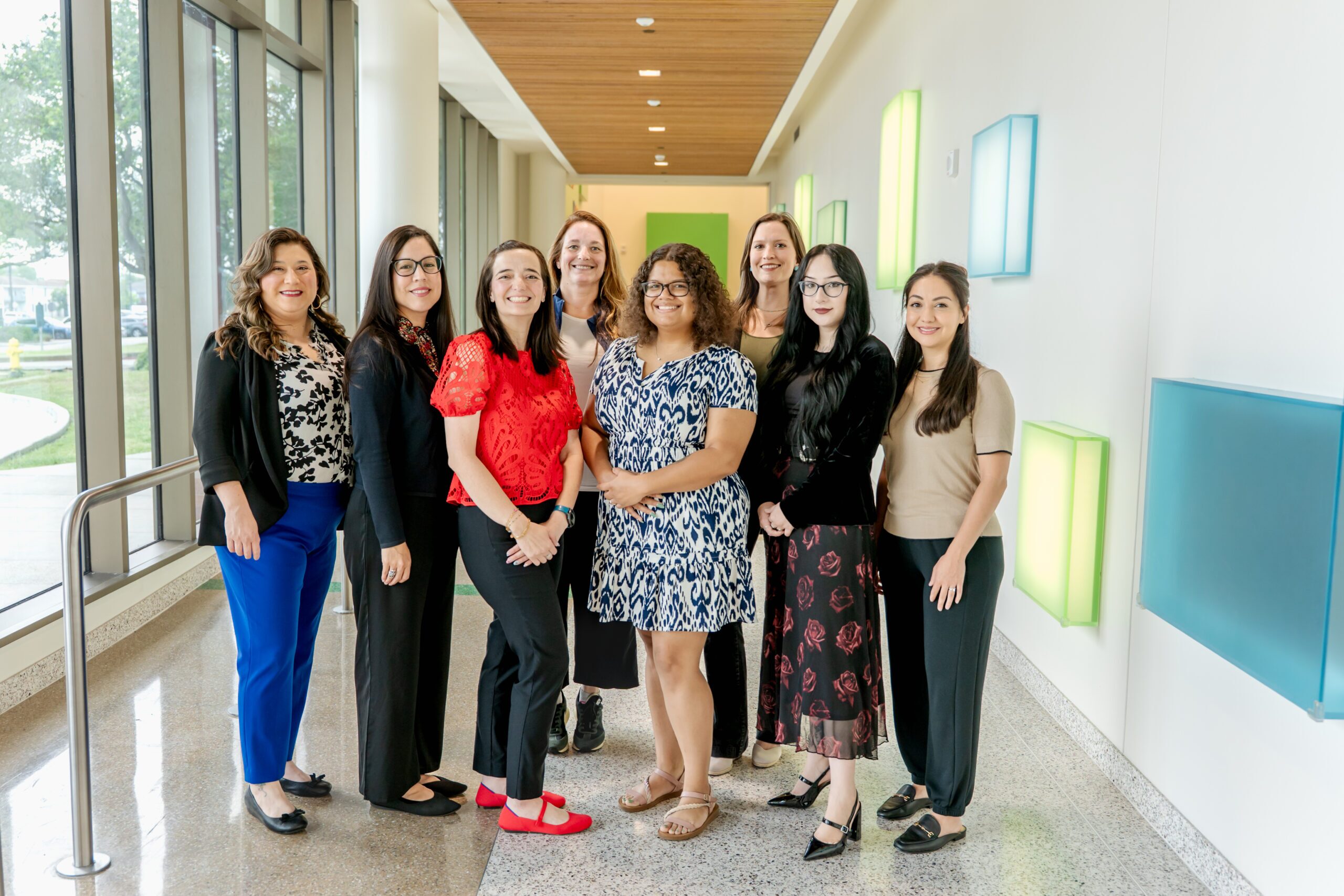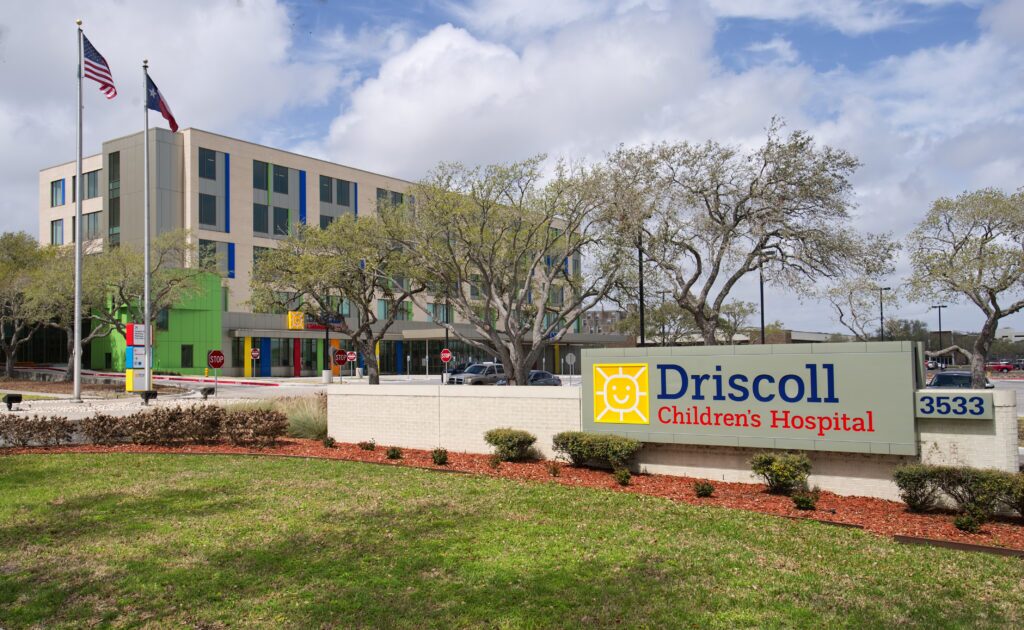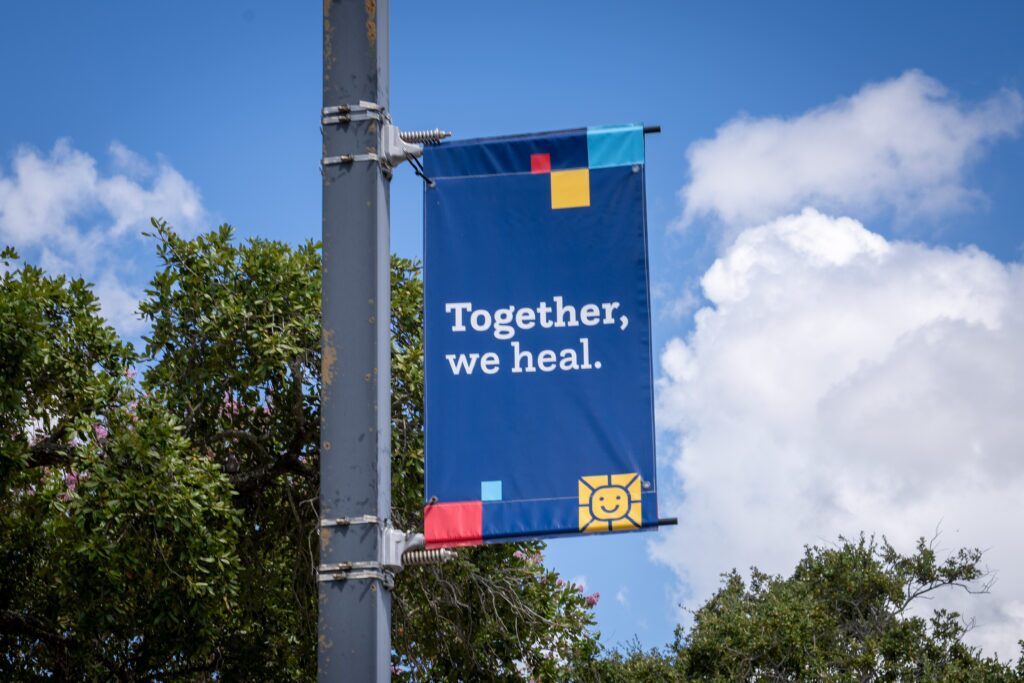How Driscoll’s Mental Health Program expands care to Coastal Bend students

In classrooms across Corpus Christi and Gregory-Portland, small changes are adding up to something big.
Teachers notice calmer classrooms.
Parents talk about fewer meltdowns at home.
And when a student needs help, there’s someone they trust waiting down the hall — a licensed mental health specialist from Driscoll Children’s Hospital.
The idea is simple but powerful: bring care to the place where children spend most of their day, and offer it early, before a crisis begins.
The results are proof it’s working.
What started three years ago as a pilot effort has grown into Driscoll’s School-Based Mental Health Program, a thriving initiative that now serves students in both Corpus Christi ISD and Gregory-Portland ISD, with plans to reach even more schools across the Coastal Bend.
“The biggest impact is that we are in the schools where the students have immediate access to mental health services,” said Michelle Goodman, senior director of care coordination at Driscoll Children’s Hospital. “Year to date, we’ve provided over 8,000 mental health sessions. We’ve served over 600 students — and every one of those sessions represents a child who feels seen, supported and hopeful again.”
The program, by the numbers
In 2024-2025, Driscoll’s School-Based Mental Health Team delivered 3,940 sessions for over 300 students. The program also held 226 family sessions and completed 26 crisis interventions.
Among elementary students, 54% showed improvements in emotional and behavioral health scores, while 86% of middle and high school students saw improvement in depression severity.
Schools saw clear ripple effects: an 8% rise in attendance at Gregory-Portland Middle School, a 34% drop in discipline reports at participating elementary schools, and fewer incidents involving self-harm or threats.
“These aren’t just numbers,” a team summary noted. “They are real stories of hope, progress and healing.”
A hospital-led model, by design
It’s rare for a nonprofit children’s hospital to hire and embed its own mental health clinicians inside public schools. But Driscoll’s leaders say that’s what makes the program special and effective.
“It was a very intentional thing to have them be Driscoll employees,” explained Goodman, adding that the approach ensures consistent training, data tracking and confidentiality, while allowing clinicians to provide comprehensive mental health support.
Driscoll’s mental health specialists — all graduate-level social workers or licensed therapists — work full-time in schools and continue providing support throughout the summer.
“Our specialists are part of the school community every day,” said Audra Pineda Strubbe, major gifts officer at Driscoll Children’s Hospital. “They’re in the hallways, at lunch and in classrooms — so when a student needs help, support is right there. It’s a constant, caring presence, not just a one-time visit.”
The team uses short, solution-focused therapy for anxiety, depression and behavioral challenges. Students learn coping skills they can use in daily life, and when longer-term care is needed, families are connected with community providers.

Teachers and families feel the lift
The benefits go beyond the students who step into the licensed clinician's office. Mental health specialists support principals and teachers, offering classroom strategies and staff education on stress and emotional wellness.
“The stories that they share, how they utilized the coping skills, how they feel better about themselves, and the support that the teachers feel by having a mental health specialist available really stand out,” Goodman said.
Driscoll’s Positive Parenting Program also teaches caregivers practical tools to handle stress and strengthen family communication. Since the program started, the team has led nearly 370 sessions for parents and families.
And from the beginning, collaboration has powered the program’s success.
“It’s really a unique program in that it’s a collection of community partners that have come together to make this happen,” Pineda Strubbe said.
Funded by a generous grant from the Coastal Bend Community Foundation and supported by private and corporate partners, Driscoll’s School-Based Mental Health Program partners with area school districts to improve children’s mental health across the community.
“While we continue the program in Corpus Christi ISD and Gregory-Portland ISD, we’ve received additional funding to help us expand to help more students,” Pineda Strubbe said.
The program now reaches across the Harbor Bridge into San Patricio County and is exploring partnerships with other districts where access to mental health services remains scarce.
Still, across South Texas, the need for child mental health professionals far outpaces the supply.
Driscoll is helping fill that gap by training future clinicians. The hospital partners with Texas A&M University–Corpus Christi and Texas A&M–Kingsville to offer internships and supervision for social work and counseling students.
“We have created that pipeline. We bring them on as students and interns, and we have hired a few,” Goodman said. “The work that they are doing is very evident. Teachers see calmer classrooms. Students are learning to handle life’s stress better. Families feel supported.”

Giving children a chance to thrive
For Driscoll, the work aligns with its mission to heal children and strengthen families — body, mind and spirit.
“Mental health is just one of those areas that everyone has been touched by and how difficult it can be sometimes to get that help,” Pineda Strubbe said.
Three years after launching the pilot in five elementary schools and one high school, Driscoll’s leaders say the success speaks for itself.
“Three years ago, we were launching, and now we’re not only wrapping up the pilot, but we’re moving forward,” Pineda Strubbe said. “So, that’s very exciting.”
The team’s next phase focuses on expanding into more schools, reaching students earlier and continuing to equip families with tools and education that strengthen resilience.
But what makes this effort unique is how it brings everyone together:
A children’s hospital provides clinical expertise inside classrooms.
Schools welcome that support.
Families gain access to care without barriers.
“They can all feel like they’re playing a role in something that truly matters,” Pineda Strubbe said. “Together, we’re helping children build resilience and giving them the chance to thrive.”
